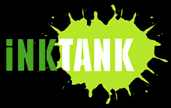
You asked for a list of books and I've delivered. These texts are not required reading for the Writers Salon. But they are good books to have as a writer. Look for updates in the future. And please send recommendations if you have them.
The Story and Its Writer, Edited by Ann Charters, Bedford/St. Martin's.
I’d say any edition of this book would do, but I don’t know anything about the compact version. It’s always available used because it’s often a required text in college courses. I like it because it’s a good anthology, a good introduction to literary writers for those who are new to the genre and a good reference for those who are old hands. I recommend it because it includes a number of interviews and essays that expand the experience of the writing, some of which can’t be found elsewhere, and because it includes a useful list of literary terms, a solid history of the story, and interesting biographical notes.
Poems, Poets, Poetry, Edited by Helen Vendler, Bedford.
I like this anthology as an anthology, but I also like its plainspoken approach to matters of craft. Vendler explains what she means, which is nice as long as you agree with her meaning.
The Elements of Style, by William Strunk and E.B. White, Longman.
Any edition of this book will do. You can pick it up used for under $10. Go here for the basic principles of composition, grammar, word usage and misusage, and writing style.
The Best American (Insert Genre Here), Houghton Mifflin, Any Year.
Of late, this series has been expanding exponentially. I can’t attest to the quality of all of them, but I can say that these books will give you a good sense of what’s going on in any given genre. The best work is selected from the top literary magazines and published every year in an affordable collection. If you can’t get around to buying many journals, this may be the way to go. By the way 2000 was a great year for the short story edition. I’m also a fan of The Best American Short Stories of the Century.
The Paris Review Interviews, Picador.
There are several volumes of interviews; I’ve got volume one and can attest to its usefulness. It’s great. Use it to learn what the writers you admire (and the writers who have escaped your attention) have to say about writing, about craft, about living.
On Moral Fiction, John Gardner, Basic Books.
If you’ve ever wondered about the source of this continuous dream business, here it is. I recommend this book because it engages us in a useful conversation about what art does and what it means. It informs much of my thinking about the teaching of writing and it’s a book many people know, which means it’s an easy reference.
Habitations of the Word, William Gass, Cornell.
I recommend this book as a way to continue the conversation that I begin with Gardner. If you’re upset by the notion that all art is obligated to mean, this book of essays is for you. It’s also a good place to begin a conversation about language.
Ariadne’s Thread: Story Lines, J. Hillis Miller, Yale U Press.
This is a tough book. It may kick your ass. But you will be ten times smarter after reading it. It begins with a story that becomes a metaphor for storytelling: the story of Theseus and his journey out of the Minotaur’s labyrinth.
Poets & Writers
This is the leading magazine for literary writers. I am not often impressed by the writing or the reportage, but it does list all of the contests, calls for submissions, and conferences. Of course, you can always look at those for free online: http://www.pw.org/mag/grantsawards.htm


No comments:
Post a Comment